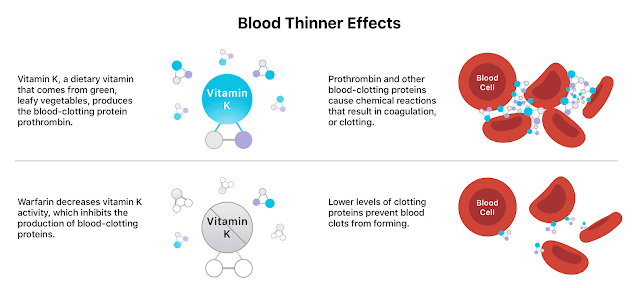UK Trial: Post-Hospital COVID Blood Thinner ‘Ineffective’
Researchers conclude a blood-thinning drug offered to COVID-19 patients taking part in the HEAL-COVID trial (Helping to Alleviate the Longer-term consequences of COVID-19) does not help patients recovering from moderate and severe COVID-19.
However, this doesn’t mean that blood thinners aren’t appropriate for anyone experiencing COVID-19. There are also safer, natural alternatives to reduce blood clot risk.
No Clear Benefit to Apixaban After Acute COVID
The tested drug, called Apixaban, is an anticoagulant given to many patients recovering from severe COVID to prevent blood clots. However, trial data indicates it not only doesn’t work, but also carries the risk of major bleeding.
Blood thinners are typically used in people with an irregular heartbeat called atrial fibrillation (AF). These patients are prone to blood clots in their hearts, which can travel to any organ, like the brain, and cause tissue death from lack of blood supply.
“Blood thinners are used to treat COVID patients who have clear evidence of thrombosis, a deep vein thrombosis (DVT), or a pulmonary emboli [blood clot in the lung], or in patients who have multiple organ failure suspected to be secondary to micro thrombosis [tiny blood clots],” Dana Shani, MD, a hematologist at Lenox Hill Hospital in New York, told The Epoch Times.
Shani pointed out that Apixaban has been used in patients with COVID who require anticoagulation. This is because it’s very effective, doesn’t require monitoring like coumadin, has an acceptable side effects profile, and a shorter half-life than other blood thinners. This means if there is bleeding, the drug is eliminated from the body sooner.
“Up until now it’s been assumed that Apixaban helps patients recover after severe COVID-19 and that thinning their blood to prevent clots is beneficial,” said Mark Toshner, MD, joint Chief Investigator for HEAL-COVID in a statement.
During the HEAL trial, doctors looking for effective treatments against COVID-19 hoped Apixaban would reduce patients’ risk of experiencing blood clots by thinning their blood.
Trial findings show about 31 percent of COVID patients receiving standard care were again hospitalized within a year, only slightly better (29 percent) than patients using Apixaban. Also, 402 trial participants receiving Apixaban developed serious bleeding, leading doctors to stop using it.
“These first findings from HEAL-COVID show us that a blood-thinning drug, commonly thought to be a useful intervention in the post-hospital phase is actually ineffective at stopping people dying or being readmitted to hospital,” said trial Chief Investigator, Charlotte Summers, Ph.D., and intensive care specialist at Addenbrooke’s Hospital and the University of Cambridge, in a statement.
According to Summers, this finding is important because it will prevent “unnecessary harm” occurring to people for no benefit.
“It also means we must continue our search for therapies that improve longer-term recovery for this devastating disease,” she added.
Researchers Will Continue Testing Atorvastatin
The trial, which is funded by National Institute for Health and Care Research (NIHR) and the Cambridge NIHR Biomedical Research Centre, will continue testing a statin called atorvastatin.
Atorvastatin, although not a blood thinner, can also help to prevent blood clot formation.
However, a study recently published in the British Medical Journal (BMJ) found that for adults with COVID-19 admitted to the intensive care unit (ICU), atorvastatin showed no significant reduction of thrombosis risk or all-cause mortality.
Blood Thinners Most Appropriate for Patients at Risk of Blood Clots
Shani said that a “very interesting” study would be to see how Apixaban performs against a placebo in patients who have a history of thrombosis, or who have an identified genetic predisposition for thrombosis.
According to Shani, the COVID patients for whom blood thinners are most appropriate are those who have a history of thrombosis in the past or patients who have a genetic predisposition for clotting.
However, “Patients who are not in one of those two groups are not likely to benefit from use of blood thinners,” she said.
Natural Ways to Reduce Clotting Risk
Shani emphasized that keeping your weight within a healthy range, avoiding prolonged periods of not moving, and keeping well hydrated can help prevent blood clots.
“Low-dose Aspirin (81 mg), can also be efficient in preventing clots for the general population but not for people who are prone to clots,” she added.
There are also foods and supplements that can reduce the risk of blood clots by acting as natural blood thinners.
A 2019 review indicates turmeric may help block blood clotting but advises caution when combining turmeric with prescription blood-thinning drugs. Curcumin is the active ingredient in turmeric and appears to have blood-thinning or anticoagulant properties.
Another spice that may reduce blood clotting is ginger. Researchers have found that compounds in ginger can prevent blood platelets from sticking together to form clots.
A study published in Food Science and Biotechnology finds that garlic powder demonstrated anti-blood clot formation activities in rats, while a 2020 review of studies finds garlic supplements could help reduce blood pressure and had mild anti-thrombotic effects.
According to a study published in the journal Bioorganic Chemistry, compounds in ginkgo biloba could block an enzyme that causes blood clotting. However, the study was conducted in a laboratory, rather than on people or animals, therefore more research is needed to confirm whether ginkgo has the same effect on the human body.
According to the National Blood Clot Alliance, vitamin E is a mild anticoagulant and taking doses greater than 400 units should be avoided.
However, before trying natural remedies, it’s important to speak with your healthcare provider since they may not work as well as medication and some could interfere with prescription drugs you already take.
Republished from: https://www.theepochtimes.com/health/uk-trial-post-hospital-covid-blood-thinner-ineffective_4910760.html







.png)

Comments
Post a Comment